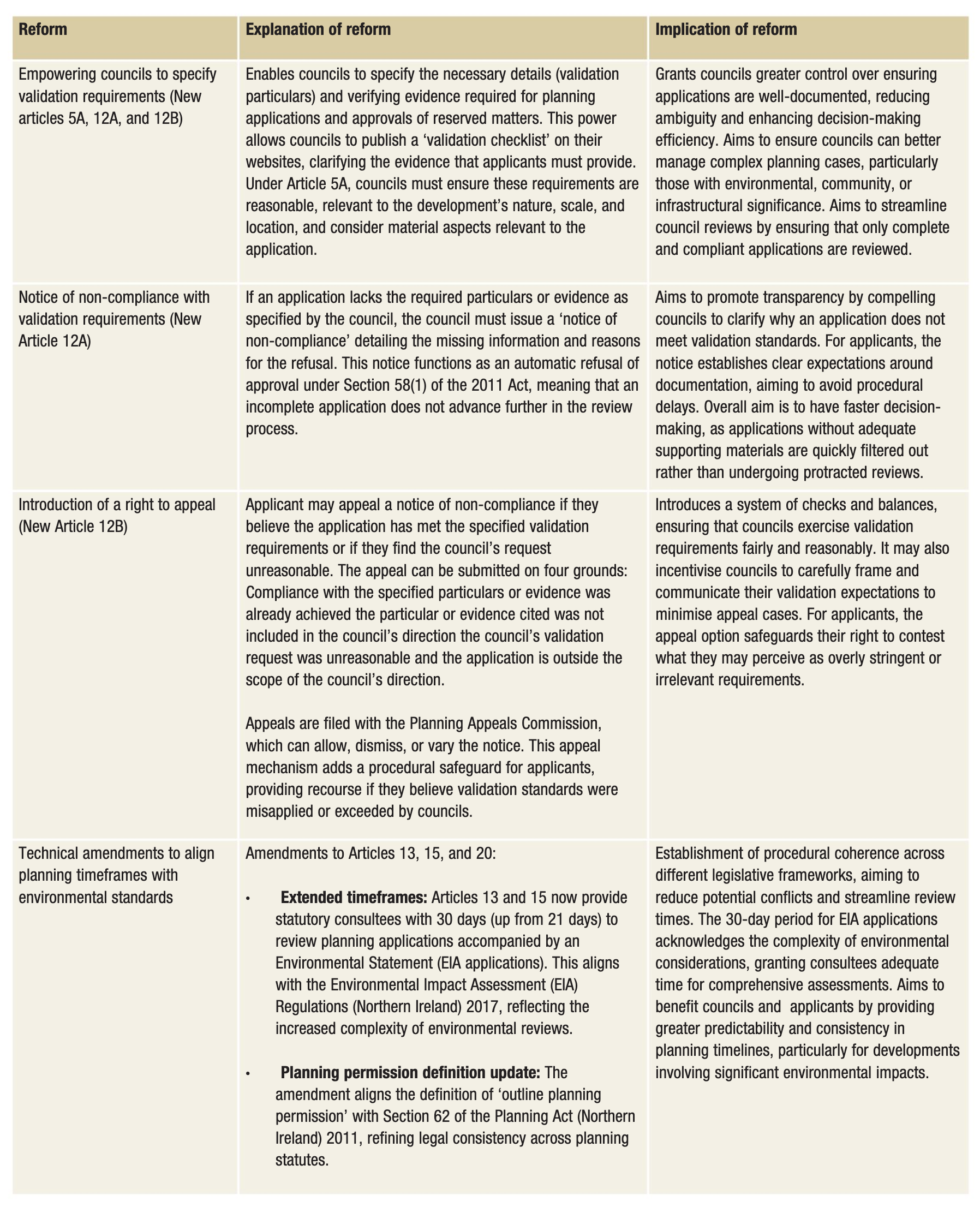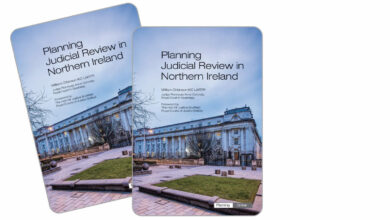Planning Order reforms explained

Minister for Infrastructure John O’Dowd MLA has said that the Planning (General Development Procedure) (Amendment) Order (Northern Ireland) 2024, set to come into operation on 1 April 2025, will “improve planning performance with better quality applications entering the system”.
By amending the 2015 Order, the reform brings Northern Ireland’s planning practices in closer alignment with environmental regulations and introduces enhanced powers for councils.
Under the reforms, councils are granted increased authority and accountability as they will now possess explicit authority to determine the required scope of validation for applications, enhancing their capacity to manage the planning process rigorously. The stipulation that validation requirements be reasonable and relevant is centred on enhancing accountability, as councils must justify these standards based on material considerations.
To streamline application processes, validation particulars and verification procedures aim to reduce the number of incomplete or poorly documented applications, which in turn should accelerate the overall review process. Councils are expected to benefit by having better-prepared applications, while applicants gain from a structured process that minimises ambiguity. Over time, it is theorised that this may lead to reduced backlog in local government planning departments and faster decision-making for standard applications.
Key amendments and their implications

The alignment of statutory consultee timeframes with the Climate Change Act (Northern Ireland) Act 2022 is stated as reaffirming the Executive’s commitment to tackling climate change. Under the reforms, planning decisions are legally required to incorporate adequate environmental scrutiny, particularly for large-scale developments with potential ecological impacts.
By mandating councils to provide notices of non-compliance and establishing a formal appeal mechanism, the reforms promote procedural transparency as applicants are better informed about application requirements, and avenues exist to contest decisions.
Speaking in October 2024, the Minister for Infrastructure John O’Dowd MLA said that the reforms are designed to “improve planning performance with better quality applications entering the system, resulting in shorter processing times, more efficient consultee responses and quicker planning decisions”.
He adds: “I am committed to improving the planning process and these legislative amendments have been introduced as a result of the Department’s Planning Improvement Programme, which is aimed at creating an efficient, effective, and equitable planning system trusted to deliver high quality, sustainable, inclusive and healthy places.”





